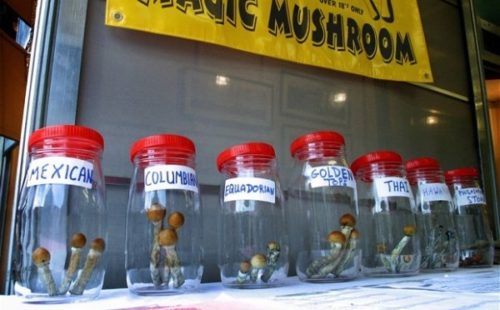
21% of Americans now live in states that have legal recreational cannabis, and an overwhelming majority of them live in states with legal medicinal cannabis. It’s now obvious to every honest person that cannabis is a medicine, and that the recreational positives of it vastly outweigh the negatives. However, even when cannabis law reform wins its inevitable comprehensive victory, it won’t be the end of the struggle for cognitive liberty.
The struggle for cognitive liberty has been waged for several thousand years. It arguably begun when the first ever conversational topic became taboo – perhaps when some alpha male enforced a rule that meant his tribe were forbidden to speak of a certain subject. Since then, the forces of cognitive enslavement have only become more aggressive and more sophisticated.
In the New Zealand of today, we plebs are not even allowed to smoke medicinal flowers such as cannabis, not even if one of us has a severe medical condition that causes them to suffer badly. We’re not allowed to because the deconditioning effect of cannabis means that all of the shameless bullshit and lies that the political class have pumped into our heads for decades would be at risk of getting rejected.
Because the conditioning that enslaves us is profitable to the ruling class – as it makes us compliant, submissive and obedient – it is worth money. It could effectively be considered capital. This means that allowing the population cognitive liberty to question their own psychological enslavement, and the means to achieve this liberty, is a risk to the accumulated wealth of the ruling class.
This is true of cannabis, and is true ten times over for psychedelics.
Ultimate cognitive liberty comes from the complete destruction of the conditioned mind (or programmed mind). The behaviours that have been deliberately programmed into us have, and are intended to have, the ultimate effect of making us unhappy, because there is nothing more profitable than human misery.
This refers to the programmed behaviours that the ruling class force into your head at school, in the workplace, and through the mass media. They do this because your slavery is profitable, and because it allows them to impose a form of order on society that is beneficial to them. For these two reasons, the ruling class opposes the legalisation of drugs that allow cognitive liberty to flourish.
For example, it is known well enough by the people who need to know such things that smoking cannabis makes a person less desiring of, and less attached to, material possessions. This is because it has the effect of reducing suffering, which makes a person less likely to work long hours to save the money necessary to buy the crap that they mistakenly believe will make them happy. So reduced suffering means reduced profits for the ruling class.
Therefore, maximum profitability demands that the cognitive liberty of the people who might question this brainwashing be minimised.
When the Western World was first exposed to the power of psychedelics, we just shat our pants. We were in no way emotionally mature enough to deal with an entheogen that reunited our individual consciousness with that of God. Reuniting one’s consciousness with God is the same as absolution from all suffering, and we were in no way ready for that.
However, now that many of us are mature enough to treat cannabis as what it really is – a deconditioning agent that alleviates psychological suffering – we are starting to become aware that much of the suffering we endure on a daily basis has been forced on us from positions above us on the dominance hierarchy.
This means that the further we can decondition ourselves, the less suffering.
This fact was understood by Kevin Saunders, who is the man behind the recent Californian ballot initiative that seeks to “exempt adults 21 and older from penalties of possessing, selling, transporting, or cultivating psilocybins.” Saying that the ballot is “a natural progression from marijuana legalization,” Saunders relates a personal story of overcoming heroin addiction as a result of the deconditioning effects of the drug.
Psychedelics have incredible potential for alleviating all suffering arising from psychological conditions that are caused by excessive conditioning, in particular anxiety, depression, post-traumatic stress and addiction. Many people are aware of this, though they are currently shunned by the mainstream narrative, which has been set (as mentioned above) by those who profit from the suffering.
Over time, however, the truth will out, and this means that the legalisation of psychedelics is an inevitability.



